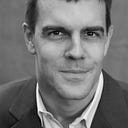Member-only story
The Fascist Philosopher and Putin’s Ideology
How an eccentric Russian thinker’s work might illuminate Putin’s decision to invade
Over the past week, there have been innumerable pieces, posts, and tweets from foreign-policy experts and pundits articulating roughly the same thought, “This is not the Vladimir Putin we thought we knew.” If Putin’s image in the West had been that of a coldly rational, calculating leader who was always thinking two steps ahead, his surprising decision to invade Ukraine (and to invade it without a clear military strategy, it appears) has made him look more like an impetuous, irrational leader acting for ideological reasons as much as strategic ones.
And it isn’t just the invasion. Indeed, the thing that first made people wonder what had happened to Putin was his odd, rambling speech last Monday night. That speech was not simply about Ukraine trying to join NATO, or even about the eastern part of the country (where Russian-backed separatists have been waging a proxy war against Ukraine since 2014). Instead, it suggested that Ukraine was, in essence, an illegitimate, artificial state, one “entirely created by Russia, or, to be more precise, by Bolshevik, Communist Russia,” and made by “severing what is historically Russian land” from Russia.
